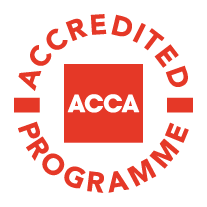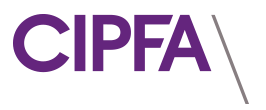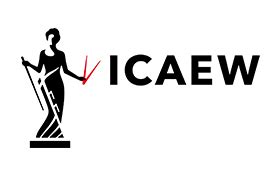
Accounting and Finance with Foundation Year
Full-time
With placement
Four year
Five year
September 2026
In a nutshell
This foundation year programme will prepare you for your future accounting and finance studies. You will gain the confidence and abilities needed to continue your education and go on to have a successful career in accountancy, finance, banking, insurance or general management positions.
- Gain a base level of knowledge in accounting, finance and business management
- Develop your academic and personal skills, preparing you for future studies
- Gain a solid business education so you understand how accounting and finance fits in the wider context
Become industry ready
Our teaching is practical and career-focused, with input from our industry partners, so you'll build the expertise that employers look for. You'll develop personal skills, such as communication and confidence, alongside the practical, including financial analysis, budgeting, risk management and much more.
You’ll look ahead to the technologies that will affect the work of accountants in the future and gain the essential digitals skills that will help you go further in the industry, such as:
- Microsoft Excel and Microsoft 365
- Xero Accounting Software
- Bodyswap technology
Our Accounting and Finance undergraduate programme is accredited by major industry bodies including the ACCA, CIMA, CIPFA and ICAEW, so you know that what you learn is aligned with industry standards. If you choose to study accredited modules, you can benefit from exemptions from a number of professional body examinations.
This course is also available with a placement option. Speak to our enquiries team for information.
Your journey starts here
Ready to take the next step? Discover more by attending an Open Day, or speak to our dedicated course enquiries team for further information.
options available
Course accreditations




This is for you if...
You love numbers and enjoy problem-solving
You are looking for a degree accredited by the major professional bodies
You want to learn the practical applications and theories of accounting
All about the course
Your foundation year will give you a grounding in accounting and finance, preparing you for your future studies. As the course progresses, you will have the chance to choose modules to suit your desired studies.
Following completion of your foundation year, you will build the foundation of financial knowledge that will be developed upon throughout the remainder of the course. You will develop other skills that are useful in the fast-paced world of finance and beyond. The second year is all about exploring more specialised theories and learning skills that will be transferable across multiple business functions. By your final year, you will develop the skills needed for responsible and ethical leadership and understand how to think strategically.
You will also have access to placement, study abroad year and additional opportunities to develop your real-world skills.
"I've enjoyed my time here at Salford because you learn a lot of theory, but are also given a chance to apply it to real-life situations. While the subject I'm studying is quite complex, I can see a clear pathway into the finance industry and the career I'm working towards." - Alex Vieru, BSc Accounting and Finance. Read the full story on Prospects.
Foundations of Business
This module will introduce you to key concepts of business and management, looking at what business is (and isn’t). You will be encouraged to draw on real-life examples found in the businesses you use in your every day life. You will develop an understanding of the key functions used within contemporary businesses and learn about the tools and techniques used in business for analysis and planning.
IT for Accountants
In IT for Accountants, you will learn about the importance of IT systems in accounting and develop your skills in spreadsheet software.
Academic and Personal Skills
This module takes you through how to get to grips with the technology you need to succeed, as well as using the library, how to reference and how to produce the different styles of academic writing. It also helps you to develop yourself; you will create a CV, learn how to write a cover letter and find out what your learning style is. The module has guest speakers who share their expert knowledge and experience with you. All the skills covered in this module will help you to succeed in your chosen degree.
Employability for Life
The module aims to acquire and develop an understanding of the employability skills required to succeed in your chosen industry. This is a practical module which will help you create and develop a professional CV and will develop your understanding of the recruitment and selection process. You will learn essential life-long skills to help you succeed in job applications whether they are for part-time work whilst you are a student or for your future graduate career.
Financial Accounting for Business
Cost and Management Accounting for Business
Contemporary Practices in Accounting and Finance
This module explores the wide range of accounting and finance professions and the commercial environment in which accounting and finance operates. An effective accountant and finance practitioner needs to have a broad understanding of the commercial environment and modern practices, such as FinTech and this module develops this knowledge. This module introduces essential academic and employability skills, including preparation for internships and placements.
Accounting is an ever-changing professional service with challenges in both knowledge and skills, and these issues will be explored including approaches to maintaining current levels of technical skills as well as the vital soft skills embracing IT and inter-personal skills.
Governance, Ethics and the Legal and Regulatory Environment
In the professional business world, an understanding of the legal and regulatory environment and practise ethical and responsible management is imperative. This requires an understanding of the institutional systems that have led to the development and enforcement of corporate governance. This module will introduce you to the legal and regulatory environment in which accounting and finance operates. You will gain an awareness of the current developments in the UK and international financial reporting standards and practices, as well as explore the legal frameworks and regulatory environment for ethical and responsible corporate governance.
Digital and Quantitative Skills
This module introduces you to the common industry digital applications used in business and will develop the quantitative skills demanded by employers in the accounting and finance professions. Employers routinely require graduates to possess working knowledge of how to use Excel, hence this module will enable you to develop that important knowledge. You will also be introduced to statistical techniques relevant to accounting and finance, including descriptive statistics and introductory regression modelling. This will enable you to effectively obtain, clean, and use data from a range of sources and enhance decision-making. Through completion of the module, you will work towards achieving the Microsoft Office Specialist, Excel Associate certification.
Business Economics
This module will enable you to understand the operation of markets and the economy. It considers both microeconomics - the analysis of choices made by individual decision-making units and macroeconomics - the analysis of the economy as a whole. It will also help you to develop an understanding of basic economic concepts that are applicable to careers in business, accountancy, and finance.
Fundamentals of Financial Accounting
This module aims to provide you with a solid foundation in basic bookkeeping, accounting techniques, and the preparation and evaluation of financial statements. You will be introduced to the fundamental principles and concepts of financial accounting and will be supported to develop your skills and knowledge in the basic approaches to the preparation and analysis of financial accounts.
Fundamentals of Management Accounting
The purpose of this module is to develop an introductory knowledge and understanding of the nature and purpose of cost and management accounting information within organisations. You will be introduced to the fundamental principles around topics such as forecasting, budgeting and costing. The module content is cumulative which will form the foundation of future modules which may attract exceptions from the major accountancy bodies such as ACCA.
Professional Development in Accounting and Finance
This module is designed to help develop graduate-level employability skills and plan for undertaking work-based learning via work placement and/or internship. The module will develop awareness of the recruitment requirements, processes and procedures which employers typically use to attract and recruit talent in accounting and finance. You will develop knowledge of the placement/internship opportunities which are available which can enhance your professional development. It will provide you with the essential professional skills in applying for work placements, internships and graduate positions, as well as support for those of you who may be intending to establish your own business.
Sustainability in Accounting and Finance
This module introduces sustainability accounting and especially how sustainable development links to the roles of organisations, financial management, management activities, accounting and reporting. The module will expose you to key developments in sustainability reporting and it will examine the current requirements for companies to report sustainability information such as their impact on the environment, society and economy. It will consider how sustainability accounting can be significant in the context of financial markets, risk management and investments and the accountability of organisations.
Also, it will provide an opportunity to explore future development of sustainability in accounting and finance.
You will complete four of the following 20-credit elective modules. Please note, the modules you select in year two will determine what options you can take in your final year. For more information, please get in touch.
Financial Management
This module aims to provide you with an understanding of the fundamentals of financial management and their practical application within a business context. You will learn about the role of financial management in achieving organisational goals and how to use financial information to make informed decisions.
Entrepreneurial Accounting and Finance
This module introduces the necessary knowledge and skills to enable you to understand the nature and characteristics of financial planning in the context of entrepreneurship. The goal of this module is to help you to acquire a critical understanding of the processes of financial management in a way that facilitates financial and investment decision-making within entrepreneurial settings.
This module covers the key financial issues and decisions faced by entrepreneurs: different forms of business, business planning, understanding financial statements, measuring performance, evaluation techniques, the range of sources of finance available, and how to formulate an exit strategy.
Introduction to Personal Tax and Audit
This module introduces both the subject of personal tax and the foundations of audit.
It provides the core knowledge of the underlying principles of the main areas of UK taxes affecting the activities of individuals. It will consider the separate taxes such as income tax from self-employment, employment, investment, and the national insurance contributions liabilities of both employed and self-employed persons, as well as capital gains tax for individuals. Also, it can provide an opportunity to appreciate the tax implications of the taxpayer and the tax practitioner.
The audit part of the module will broadly introduce the external audit regulatory environment, professional ethics, and the basics of audit evidence.
Intermediate Financial Accounting and Reporting
This Intermediate Financial Accounting and Reporting module builds on the knowledge gained in the first year of the degree and forms the second of three financial accounting modules studied as part of the overall degree. This module will enable you to prepare and evaluate further financial statements including consolidation and identify solutions to accounting problems drawing on their knowledge and exposure to additional accounting standards and theory. The module will attract exemptions from the major accountancy bodies.
Equity Analysis and Trading
The module aims to extend acquired accounting knowledge and skills to enable the interpretation of firms’ performance and prospects and the consideration of stocks as investment vehicles. The module will cover approaches and techniques to analyse stocks, select stocks and make rational decisions. It aims to provide opportunities to develop trading skills using Excel, become an equity analyst and prepare investment reports. Additional areas of study will include the different trading attitudes: value investing, fundamental analysis, speculation, and technical analysis.
Managing Risk and Financial Performance
The module will build on previously developed prior knowledge of financial and management accounting and introduce core issues in managing risk and business performance from a financial viewpoint. Core to this will be the understanding of the types of risk faced by organisations and the strategies, methods and techniques available to mitigate and manage them. You will utilise the concepts and techniques within performance management to allow you to understand how they contribute to an organisation’s successful navigation of mid to long-term challenges.
Intermediate Management Accounting
The module builds on the Level 4 Fundamentals of Management Accounting module and further develops competency in the analysis of information on costs and in applying costing techniques in addition to developing an understanding of risk of these decisions. The module also further develops knowledge of how to use budgeting as a means of short-term planning to execute the strategy of organisations. The module content will form the foundation of future modules and will contribute to exemptions from major accounting professional bodies.
FinTech, Financial Services and Markets
Technological innovation is altering the way organisations function and supply goods and/or services. Financial technology (FinTech) is radically changing the financial services sector, providing new financial products and improved customer experience. In addition to this, accounting and financial services are now supported by a wide range of digital applications. In this module, you will gain a multidimensional viewpoint on what FinTech means and gain the knowledge to critique FinTech innovations. You will all also be introduced to common accounting software and basic FinTech techniques that underpin data analytics. On successful completion of the module, you will be able to assess various innovative FinTech technologies and appreciate the FinTech ecosystem.
Placement
You have the option to do a placement year, taking a year in industry to learn in a real-life environment whilst earning a salary and paying no tuition fees.
This is an excellent opportunity to take advantage of and we will help you find out about vacancies and make the right connections with high profile employers through regular events and presentations.
For more information, please visit the placement and internships page.
Career Development and Reflective Practice
This module will build on the skills, knowledge and experience gained from earlier studies and enable you to apply and further develop crucial employability skills through working on a live project. you will work in groups with an employer or third sector organisation in order to address a specific issue related to employment and/or career development within accounting, finance and professional services. In addition to this, you will develop personal employability and reflection skills through the use of VR software and the creation of a reflective log and personal development plan, which will support their progression into graduate-level employment or further study.
You will complete four of the following 20-credit elective modules. Please note, your choices in year three will depend on your year two choices. For more information, please get in touch.
Business Taxation
This module provides grounds of the business taxation principles and the rules in the context of these principles. It will consider the business taxation specific to the UK tax system including Corporation tax, Capital gains tax, Inheritance tax and Value Added Tax. Taxation is a subject that touches all areas of business, so it can provide an opportunity to develop further and specialise in a variety of areas. This module can lead to exemptions from professional accounting body examinations for students wishing to have a career as a professional accountant.
Accounting Fraud and Financial Crime
This module explores the salient theories that purport to explain the phenomena of accounting fraud and financial crime, and how it can be detected and prevented. This module will also develop knowledge, skills and understanding of, and ability to critically evaluate issues associated with forensic accounting, including fraud examination.
Advanced Management Accounting
Advanced management accounting concepts and techniques are organised around a focus on strategy to enable you to contribute to an organisations’ successful navigation of mid-to-long-term challenges. The module extends your understanding of approaches such as: value chain analysis; strategic pricing; lean manufacturing; strategic issues for financing the firm; risk analysis; project appraisal techniques; performance appraisal and the balanced scorecard. The module aims to develop strategic understanding and how this applies to real life scenarios.
Environmental Accounting
This module will look at a range of diverse approaches to environmental accounting, covering physical issues such as biodiversity, carbon and water, along with accounting matters such as management control, finance and audit. It will provide an opportunity to assess the current trends, challenges and opportunities relating to environmental accounting issues locally and globally. The module provides an opportunity for further development in this subject and for you to identify specific areas that you may wish to pursue further studies and research.
Advanced Audit and Assurance
This module builds on learning around Personal Tax and Audit and will critically explore issues around independence and corporate governance, the regulatory framework of auditing, the impact of civil and criminal law on auditing and current developments in financial auditing. The module content will attract exemptions from the major professional accountancy bodies.
Business Integration Project
The Business Integration Project is designed to allow you to scope, define, design and implement a research project, using published literature, to support their future career aspirations within the broad field of accounting & finance. It provides the opportunity for research and analysis of current practice and exploration of innovations and contemporary developments within accounting and finance, aligned to your future career goals. You will work under the guidance of an academic supervisor to produce an in-depth business report which addresses an identified challenge, problem or opportunity within the field of accounting and/or finance. This module encourages you to demonstrate research skills and to apply knowledge from across the programme in order to explore an area of your own interest, whilst also demonstrating the ability to work independently and with minimal supervision.
Advanced Financial Accounting and Reporting
This module takes the financial accounting and reporting knowledge and skills developed at Levels 4 and 5 up to the advanced level. It will look at a wide variety of accounting standards and the theory behind the developments in the world of accounting. It will consider more advanced areas of the consolidated financial statements and analysis and interpretation of financial information. This module can lead to exemptions from professional accounting body examinations for students wishing to pursue a career as a professional accountant.
Disruptive Technology in Accounting and Finance
The module will equip you to implement programming and algorithmic thinking in financial services, products and markets. You will be introduced to the provision of infrastructure as a Service (IaaS) and Software as a Service (SaaS) to inform thinking about the future of business operations in financial services firms, banks and vendors. You will study and analyse ethics, sustainability and governance issues pertinent to FinTech, financial markets and society. A significant proportion of the module will be designed around delivering Python syntax, how to write sequences and functions in Python, how to develop Python modules and introducing Objected Oriented Programming (OOP).
Advanced Financial Management
This module aims to provide you with the skills that would be expected from a finance manager responsible for the finance function of a business by developing upon the core financial management knowledge and skills introduced in Level 5 Financial Management.
The objective is to enhance the capability to think critically and engage in logical analysis, to conceptualise problems, form logical conclusions and the ability to solve problems.
Strategic Management in Accounting and Finance
This module will provide you with a detailed understanding of business strategy and contemporary approaches to management, to prepare you to be effective managers and leaders of the future. Accounting and Finance professionals need to be able to take a holistic view of business issues and understand the strategic aspects of business decisions in an often globally influenced operating environment. The module will draw together knowledge from across the programme and apply this to real-world organisational problems, deploying established techniques of analysis and enquiry, some of which are at the forefront of strategic research and practice.
We take a flexible approach to our course delivery that promotes diversity and inclusivity and provides a blended learning experience, which will vary to meet specific programme requirements. This learning time includes formal lectures and interactive activities such as seminars, tutorials, practical sessions, laboratory and studio learning. Smaller classes may be used to support collaborative activities such as project and group work and presentations. A range of different assessments and feedback is offered to meet the needs of both our diverse student body and specific subject needs.
Our undergraduate courses are normally made up of 20 credit modules which are equal to 200 hours of learning time. A three-year degree qualification typically comprises a total of 360 credits (120 credits per year).
Please note that exact modules and content offered may vary in order to keep content current and, for courses that offer optional modules, may depend on the number of students selecting particular options. When accepting your offer of a place to study on a programme with optional modules, you should be aware that optional modules may not all run each year. Your tutor will be able to advise you as to the available options on or before the start of the programme. Whilst the University tries to ensure that you can undertake your preferred options, it cannot guarantee this.
Frequently asked questions
What is a degree in accounting and finance?
A degree in accounting and finance equips students with a deep understanding of financial principles, accounting practice and the economic environment. The aim of the degree is to prepare students to secure a job within the finance industry, however finance students can also find employment in other sectors.
How hard is a finance and accounting degree?
For a student that has a passion for working with numbers and is willing to put in the work, a degree in accounting and finance is no harder than any other degree.
What jobs can I get with an accounting and finance degree?
An accounting and finance graduate can gain employment in a variety of roles in different sectors. For example, you could become an accountant, an auditor, a financial analyst, a risk manager, a financial advisor or an investment banker.
Meet Harry
As part of his degree, Accounting & Finance alumnus Harry completed a placement with the Northern Care Alliance (NCA).
"The university prepared me very well for this placement. What we learned at university taught me an overview of what I'm doing. It gave me a base knowledge. I feel supported all of the time; my university supervisor has honestly been phenomenal. If I ever have a question, all I have to do is email him."
What about after uni?
Further study
A postgraduate degree is a great option if you want to take your knowledge and skills to the next level. Salford graduates and alumni also receive a fee discount.
Accounting & Finance graduates could continue their studies at postgraduate level in areas such as:
Career Links
Studying Accounting and Finance at Salford Business School will open up opportunities in a wide variety of career paths, and by completing a placement year, you can enhance your skills, confidence and employability.
We work with a wide range of employers to support our students, helping them to develop their skills and access internships, placements and graduate jobs. Employers we have worked with previously include PwC, EY, Bank of New York Mellon, Beevers & Struthers, the NHS and Salford City Council.
What you need to know
This course isn’t suitable for international students. If you are an international student and interested in studying a foundation year, please visit our International Foundation Year course page.
Applicant profile
If you have an eye for detail and enjoy working with numbers, this course is ideal. But Accounting and Finance isn't just about number crunching; it’s about gathering and analysing data to make informed business decisions. Knowledge and expertise in these areas are highly sought after by employers across a wide variety of sectors.
GCSE
Maths and English at grade C / grade 4 or above. Applicants who do not have the equivalent of grade C or above in these areas will be considered on a case-by-case basis.
You must fulfil our GCSE entry requirements as well as one of the requirements listed below.
UCAS Tariff points
64 UCAS Tariff points
A Levels
CC
BTEC Diploma
MPP
T Level
72 points, pass (D to E)
Access to HE
64 UCAS points from 45 level 3 credits
Scottish Highers
64 UCAS points from minimum of 2 Advanced Highers
Irish Leaving Cert
64 points from 2 higher level subjects
European Baccalaureate
Pass diploma with 60% or above
International Baccalaureate
24 points
Salford Alternative Entry Scheme (SAES)
We welcome applications from students who may not meet the stated entry criteria but who can demonstrate their ability to pursue the course successfully. Once we have received your application, we will assess it and recommend it for SAES if you are an eligible candidate.
There are two different routes through the Salford Alternative Entry Scheme and applicants will be directed to the one appropriate for their course. Assessment will either be through a review of prior learning or through a formal test.
How much?
| Type of study | Year | Fees |
|---|---|---|
| Full-time home | 2026/27 | £5,760 for Foundation Year and £9,790 for subsequent years. |
Tuition fees will increase in the second and each subsequent year of your course by the rate of inflation, subject to the maximum fee limits set out by the UK Government.
Additional costs
You should also consider further costs which may include books, stationery, printing, binding and general subsistence on trips and visits.
All set? Let's apply!
Still have some questions? Register for one of our Undergraduate Open Days or contact us:
Additional UCAS Information
Accounting and Finance UCAS Course ID - NN34
Accounting and Finance with Placement Year UCAS Course ID - NN3K
Enrolment dates
Student information
Terms and conditionsUCAS information
Course ID NN44
Institution S03
